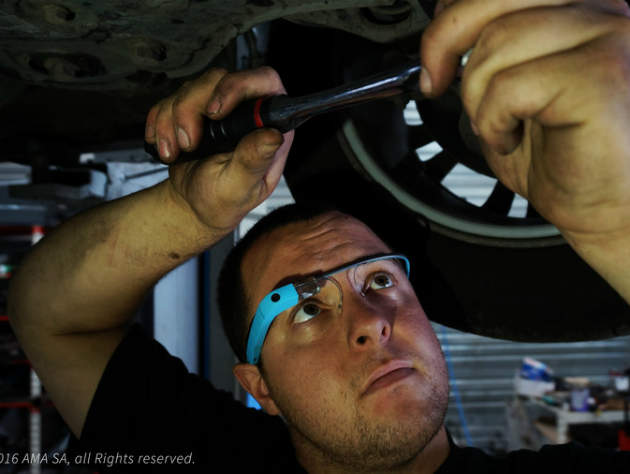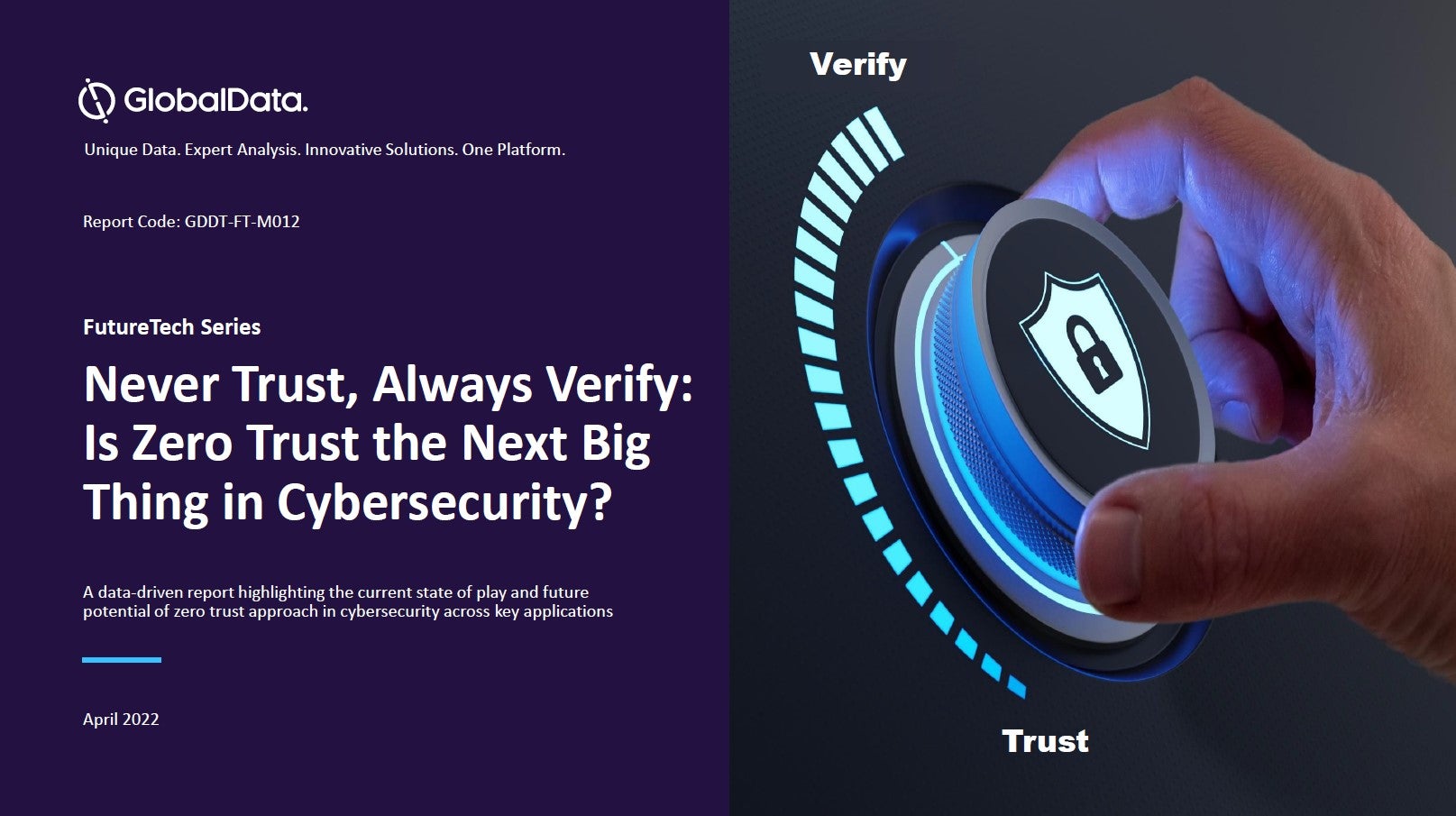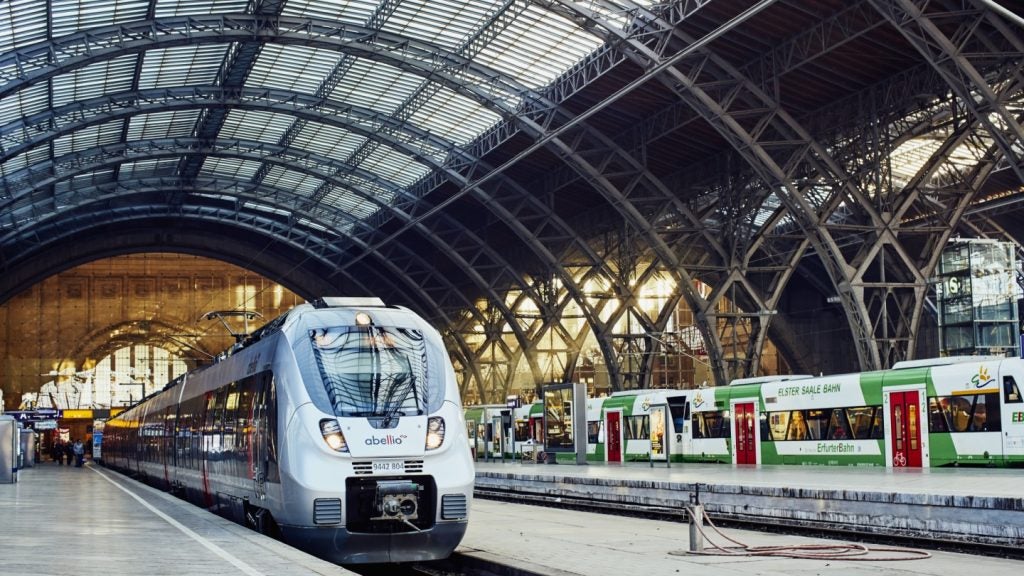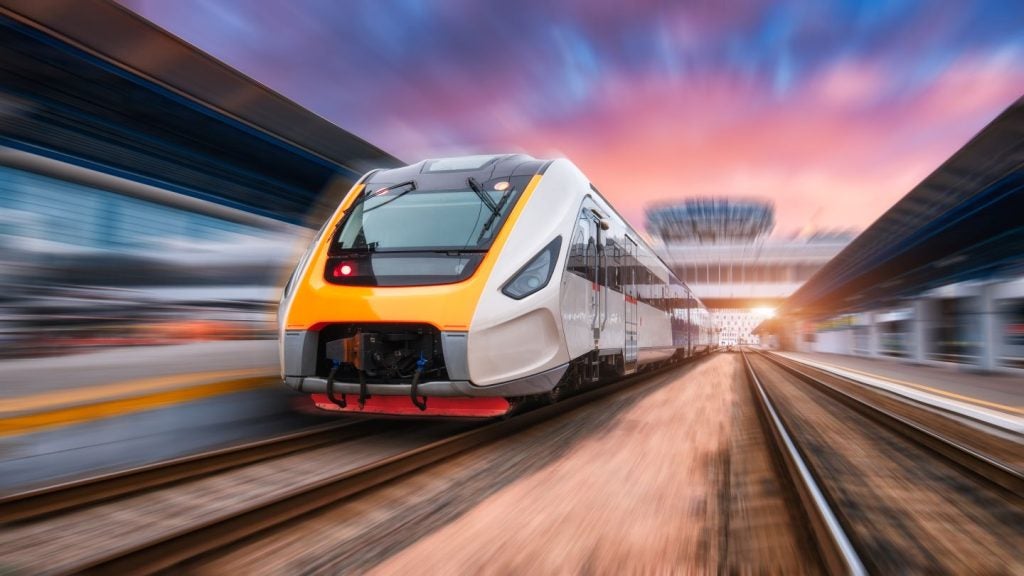
As digital technology has permeated our daily lives, its boundless potential is already leaving its mark on the world’s workforce, not least in the transport sector.
From a vast array of mobile applications to intelligent automation and augmented reality, the digital realm is expected to make up 25% of the global economy by 2020, according to the Accenture Technology Vision 2016 report.
In the railway sector, technological innovations are becoming more inventive by the day, helping staff cut time, costs and effort, as well as increase overall safety, security and well-being of both the workforce and its passengers.
Deutsche Bahn starts trial for body cameras
At the beginning of this year, German railway company Deutsche Bahn (DB) started trialling body cameras for security staff at its Berlin railway stations.
Trials began in February, after statistics revealed that 950 DB employees were attacked across the country, 10% more than in the same period in 2015.
How well do you really know your competitors?
Access the most comprehensive Company Profiles on the market, powered by GlobalData. Save hours of research. Gain competitive edge.

Thank you!
Your download email will arrive shortly
Not ready to buy yet? Download a free sample
We are confident about the unique quality of our Company Profiles. However, we want you to make the most beneficial decision for your business, so we offer a free sample that you can download by submitting the below form
By GlobalDataIn an attempt to improve safety and security, DB deployed bodycams, which strap across the chest and relay live images of an unfolding incident in real-time. This means an attacker can see themself on the camera screen and the images can be recorded at the push of a button.
Footage can then be used both as a deterrent for perpetrators and also as evidence in the event of a lawsuit.
According to a DB press release, “all relevant rules relating to data protection for customers and employees have been taken into account during the test phase” and employees using a bodycam clearly identify themselves by wearing a tag reading ‘video surveillance’.
Although stressing that it’s still too early to assess the trial’s results, DB spokesperson Holger Bajohra said: “The first impressions are absolutely positive. People are interested in technology, feel secure and are not concerned of being filmed.”
The pilot will run until the end of the year at Ostbahnhof, Alexanderplatz and Zoologischer Garten stations in Berlin, and if the technology “proves worthwhile”, DB plans to roll out the bodycams across other rail stations nationwide.
Bionic eyes for Boston’s railways workers
Another example of innovative technology use comes from Boston’s commuter rail operator Keolis Commuter Services (KCS), which in August announced the introduction of smart glasses for the organisation’s field mechanics.
Under the project, field mechanics on the Greater Boston commuter rail system will be using augmented reality (AR) smart glasses in an effort to improve communication, speed-up train repairs and diminish delays.
The glasses will be loaded with an Android-based software created by start-up AMA XpertEye, which specialises in linking AR glasses with a web-based interface. This will enable workers to contact colleagues back at the office and communicate with them in real-time via a live video stream. The video can also be saved for learning and training purposes.
According to a report by MIT Technology Review, trials of this technology will take place in three locations: on tracks near MBTA’s maintenance facility in Somerville, a maintenance facility in Readville, and a layover facility at the end of MBTA’s train lines.
At each location, the smart device is expected to help staff reduce idle walking time and eliminate the need to transport trains back to the repair facility for each malfunction.
Network Rail’s digital efforts
In the UK, owner and infrastructure manager Network Rail has been pioneering the use of smart technology for its ‘Orange Army’.
Over the past four years, Network Rail has equipped its workforce with more than 25,000 iOS devices – both iPad and iPhone –with more than 18,000 of these delivered to its frontline maintenance, operations, and safety and engineering teams.
Staff can use the devices to access over 60 mobile apps created by Network Rail, which provide workers with the latest technical data, GPS locations, and streamlined reporting.
One of the most popular is the ‘Close Call’ app, which enables employees to report any hazards or problems they come across. According to the operator, since the app was launched in January 2014, there have been 62,855 close calls made via the app, representing 80% of all close calls recorded over that period.
The ‘Sentinel’ app, dedicated to field managers, allows them to electronically scan ID cards to verify that everyone working on the railway is qualified to perform specific tasks.
For better co-ordination between the different divisions, the ‘Where Am I?’ app ensures users can pinpoint faults or incidents to within a few metres and notify the ground-based emergency and maintenance teams of their location.
In a different scheme, Network Rail, in collaboration with business psychology company Robertson Cooper, has also been promoting the use of technology to raise awareness of mental health among its staff.
In light of government statistics which show that mental health issues affect a quarter of the UK workforce, this operator has adopted confidential online assessments for staff to fill in anonymously, helping managers spot any signs of stress early on.
Japan Railway experiments with AI
Recently, the East Japan Railway Company (JR East) announced its plans to start experimenting with the use of artificial intelligence (AI) to further improve customer service.
In a pilot study planned for the latter part of the year, JR call centre operators would use an AI system that can turn audio from phone calls into text, which the programme can easily analyse and provide a speedy response for the operator.
As with any AI software, the system will learn and store railway terminologies, acronyms and new words it encounters to fine-tune future responses.
The company also plans to use robots that will answer questions at stations, the Nikkei Asian Review reports.
Furthermore, JR East is currently working on another AI system that will help staff to sort through the 500,000-plus opinions and complaints received each year online.







